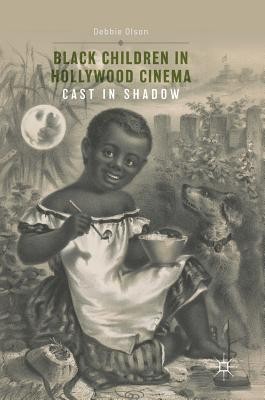
- We will send in 10–14 business days.
- Author: Debbie Olson
- Publisher: Palgrave Macmillan
- Year: 2017
- ISBN-10: 3319482726
- ISBN-13: 9783319482729
- Format: 14.8 x 21 x 2.1 cm, hardcover
- Language: English
- SAVE -10% with code: EXTRA
Reviews
Description
This book explores cultural conceptions of the child and the cinematic absence of black children from contemporary Hollywood film. Debbie Olson argues that within the discourse of children's studies and film scholarship in relation to the conception of "the child," there is often little to no distinction among children by race--the "child" is most often discussed as a universal entity, as the embodiment of all things not adult, not (sexually) corrupt. Discussions about children of color among scholars often take place within contexts such as crime, drugs, urbanization, poverty, or lack of education that tend to reinforce historically stereotypical beliefs about African Americans. Olson looks at historical conceptions of childhood within scholarly discourse, the child character in popular film and what space the black child (both African and African American) occupies within that ideal.
EXTRA 10 % discount with code: EXTRA
The promotion ends in 16d.11:44:32
The discount code is valid when purchasing from 10 €. Discounts do not stack.
- Author: Debbie Olson
- Publisher: Palgrave Macmillan
- Year: 2017
- ISBN-10: 3319482726
- ISBN-13: 9783319482729
- Format: 14.8 x 21 x 2.1 cm, hardcover
- Language: English English
This book explores cultural conceptions of the child and the cinematic absence of black children from contemporary Hollywood film. Debbie Olson argues that within the discourse of children's studies and film scholarship in relation to the conception of "the child," there is often little to no distinction among children by race--the "child" is most often discussed as a universal entity, as the embodiment of all things not adult, not (sexually) corrupt. Discussions about children of color among scholars often take place within contexts such as crime, drugs, urbanization, poverty, or lack of education that tend to reinforce historically stereotypical beliefs about African Americans. Olson looks at historical conceptions of childhood within scholarly discourse, the child character in popular film and what space the black child (both African and African American) occupies within that ideal.


Reviews